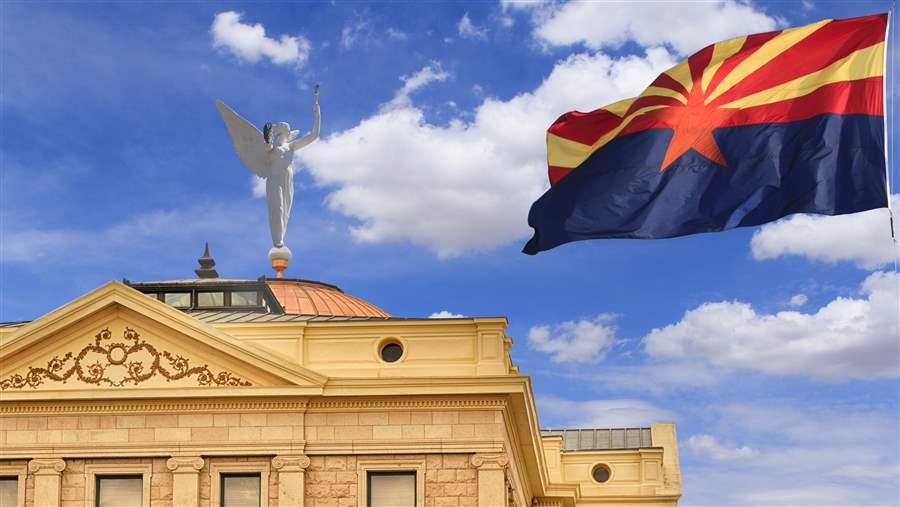Proposal to Authorize Dental Therapists Clears Hurdle in Arizona
Bill to allow midlevel providers to practice moves to Legislature for debate
On Nov. 28, Arizona’s Health Committee of Reference recommended that legislation to license dental therapists be introduced for further review by the state Legislature.
The committee, composed of members of the state Senate and House of Representatives health committees, made the decision after a hearing on a proposal by the bipartisan coalition Dental Care for Arizona. The group—which includes health care representatives, community nonprofits, American Indian tribes, free market advocates, and The Pew Charitable Trusts—believes that dentists should have the flexibility to address the significant need for care in their communities by adding midlevel providers, known as dental therapists, to their teams.
Dental therapists have been licensed in Maine, Vermont, and Minnesota, and on tribal lands in Oregon, Washington state, and Alaska. Akin to nurse practitioners or physician assistants on medical teams, these midlevel providers are able to deliver high-quality, cost-effective routine dental care to more patients and treat underserved populations, allowing dentists to focus their time and skills on more complex procedures.
Arizona has great need for increased access to dental care, ranking fourth in the country for the percentage of its population living in federally designated dental shortage areas.
This crisis of dental access includes large portions of the state’s 15 counties and all of Graham, Greenlee, La Paz, Santa Cruz, and Yuma counties. It also disproportionately affects children. In 2015, only half of Arizona children who were enrolled in Medicaid or the Children’s Health Insurance Program received any dental care. Poor oral health and diseases can have a devastating effect on a child’s quality of life and performance at school. This, in turn, could lead to a life of persistent pain, malnutrition, speech problems, and sometimes serious, even fatal, infections.
The hearing included testimony from health advocates, free market groups, and tribal leaders. Chester Antone, a Tohono O'odham Nation council member, testified about the lack of providers on tribal lands. “There’s nothing to do when you are hurting and you are in pain but to have your tooth pulled,” he said, noting that he even had to resort to pulling one of his own teeth once.
Further debate on dental therapy legislation will begin in Arizona in 2018.
John Grant directs The Pew Charitable Trusts’ dental campaign, and Kristen Mizzi Angelone manages the campaign’s state legislative efforts.











